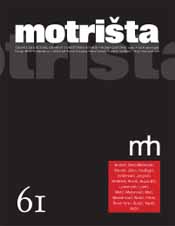Recepcija Johna Lockea u Hrvatskoj
The Reception of John Locke in Croatia
Author(s): Vlado VladićSubject(s): Philosophy
Published by: Matica hrvatska Mostar
Keywords: John Locke; reception; interpretation; empiricism; rationalism; realism; idea; idea of God
Summary/Abstract: By writing this article the author, primarily motivated by the publication of the first integral translation of John Locke’s philosophical classic An Essay Concerning Human Understanding into the Croatian language, and even more so by the fact that the translator is his friend Domagoj Orlić, gradually and systematically discloses misleading points in the overall reception of John Locke’s in Croatia up to date. First, an overview of Locke’s reception in Croatia is given as it is presented in various philosophical lexicons, glossaries, anthologies and textbooks. The faults in this reception are the following: the richness of Locke’s philosophy is usually reduced to a limited number of themes, in most cases he is merely presented instead of being interpreted; and when he is interpreted, those attempts were often ideologically dictated, and the reception was almost exclusively directed towards educational needs (secondary and college education) without any interest in contributing to the impartial tradition of reception that seems to be totally absent in this case. Secondly, a turnabout in the reception is rightly demanded. Everything seems to be revolving around empiricism as a key qualification of Locke’s philosophy in its entirety. The author, after having read the Essay carefully, offers arguments against interpreting Locke’s gnoseological position as empirical, which puts into question the very reception of Locke’s so far in Croatia. It is impossible to distinguish between the empirical (sensational) and reflective (rational) phase in Locke’s philosophy, for their interdependence renders the question about the possibility of the supremacy of one or the other utterly immaterial. Knowledge as a cognition of correspondence between two ideas is invariably a matter of intuition, while sensation and conclusion are modes of how this intuitive certainty is achieved. Knowledge reaches as far as ideas, but that doesn’t mean Locke is advocating subjectivism or idealism, or that Locke should be understood in the light of nominalism or conceptualism. This is so because ideas are the product of reality which is admitted as being something much more than our knowledge of it based on ideas. In this article only the reception of Locke’s with respect to his theory of knowledge is discussed, while the discussion of the same reception with regard to liberalism and tolerance with an evaluation of Locke’s practical philosophy in view is left for some other occasion.
Journal: Motrišta
- Issue Year: 2011
- Issue No: 61
- Page Range: 49-86
- Page Count: 38
- Language: Croatian

